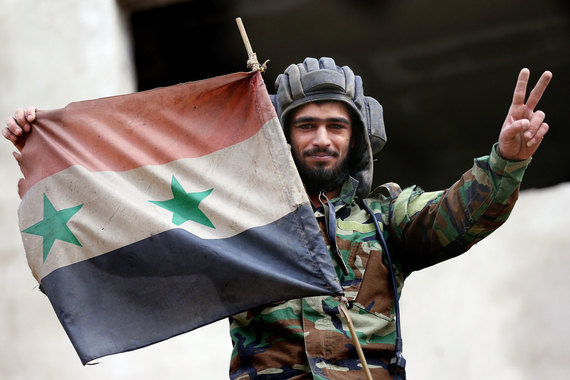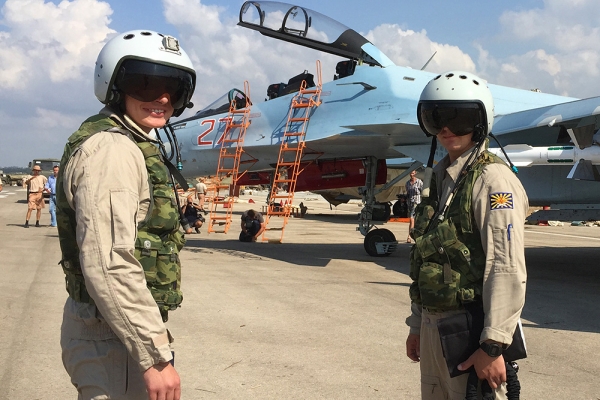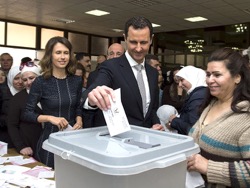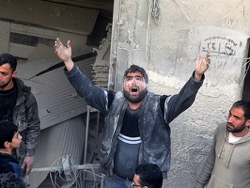
Economic expert of the United Nations about Syria’s future and destiny of the Middle East
Once established in Syria truce topical subjects for discussion in the international community began rebuilding plans for destroyed by the civil war state and the future of the entire Middle East. The Deputy Executive Secretary Economic and social Commission for Western Asia, a former Chairman of the Syrian government, Abdullah al-Dardari told “lente.ru” that needs to be done to rebuild country, how should we interpret democracy in the middle East and what lessons the world can learn from the “Arab spring”.
“Ribbon.ru”: You worked in the government of Bashar al-Assad, you know the country from within, and now, working with the United Nations, studying it from the outside. What you see today of the Syrian situation — is there light at the end of the tunnel?
Abdullah al-Dardari: I worked in government for seven and a half years, I’m now working at the UN. We’re doing everything we can to help the country achieve the vision of a brighter future. Hope it really is. Why? First: started the peace process, and Russia with the USA are actively working together!
This is a totally unique situation: Moscow and Washington are practically never cooperate, but Syria. And without this joint working there would be resolution of the UN security Council 2254, there would be no ceasefire. Yes, it was broken in the last ten days, but for the first time in the five years since the beginning of the conflict a truce gave the Syrians the opportunity to live a normal quiet life.
Another reason for hope is the resilience of the Syrians. They have proved to be very resilient people, able to survive in difficult situations. But they are very tired and want the war ended.
Third: the participants in the Syrian peace talks in Geneva demonstrates more pragmatism and realism. It’s not easy, it takes time, but it is obvious that they are ready to consider the proposals of the UN envoy on Syria, Staffan De Mistura, ready to meet one on one in the next round of negotiations. Yes, for the first time in five years, I can say that the light at the end of the tunnel finally appeared.
How your work at the UN influenced the assessment of the situation? Do you see something that you can’t see the sides of the conflict?
Of course, I had the opportunity to look at the situation a bit. When you work in government you are busy with daily chores, but when you get the chance to break away from this — you offer a different perspective. I was also able to meet hundreds of Syrians from completely different social backgrounds. I see the greatness of a nation, the ability of the Syrians to hear each other and work together.
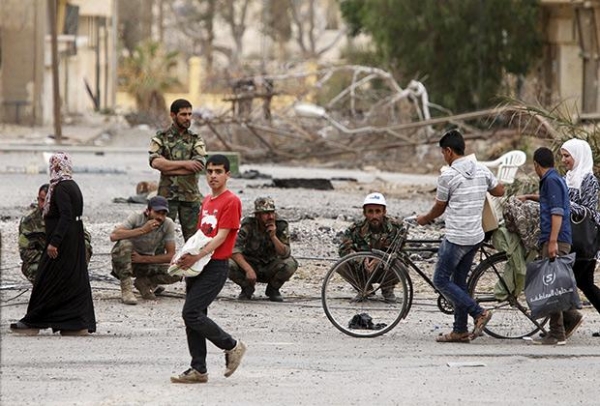
Established a truce allowed residents of Palmyra released to start back to their homes
Photo: Omar Sanadiki / Reuters
And of course, awareness: when you work in the UN, you read a lot, study the latest materials, the experience of other countries with internal conflicts, meeting with politicians from around the world that tell you about the situation in their States. Yes, this job certainly has changed my view of what is happening.
Let’s talk about the causes of the situation. In February 2011 “al Jazeera” has published an analytical report with expert commentary from Human Rights Watch, in Syria which was called “Kingdom of silence”. They said that in the country there are three factors, virtually eliminating the possibility of revolution: a relatively popular President, all-powerful intelligence agencies and religious diversity. What happened? Why Syrian stability was so fragile?
The story isn’t given an answer to this question. However, with some degree of certainty it can be argued that large-scale economic changes — both positive and negative — led to changes within society. Such changes should be reflected in the political system, but this was not done. In other words, was the imbalance between economic and political relations.
Moreover, we should not forget that in the Arab world has risen a large-scale wave of protests. Let’s take an example from history — in the fifties, after the revolution of Gamal Abdel Nasser in Egypt in the Arab world has seen many revolutions, including in Syria in 1963. We can not isolate itself from global processes.
Finally, the revolution in information technology. What you can keep inside the boundaries in the 70s or 80s, it is now impossible to shut up — information is spreading like wildfire. Tunisia burns himself alive, and the next day that the flame spreads to Egypt. All of these factors together can at least partially explain what happened.
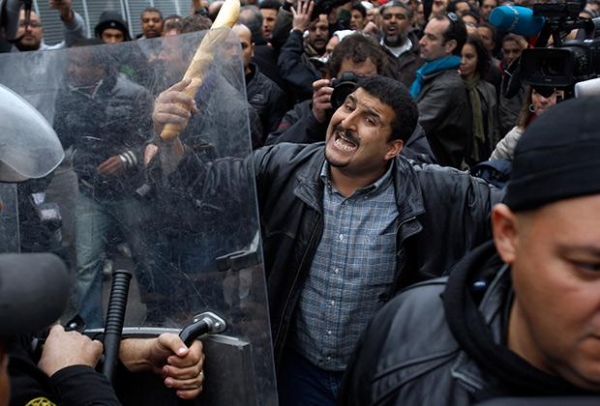
The protests in Tunisia and followed in 2011, the revolution became the first major events of the “Arab spring”
Photo: Christophe Ena / AP
Three years ago your Commission has prepared a national plan for the future of Syria. You assumed that the war would end in 2015, but, as we know, is not over. In addition, you asserted that Syria will remain a United country with a Central government in Damascus. You still see the basis for such a forecast?
The first phase of the National plan for the future of Syria is implemented, we reported on its implementation on March 31. We can say that we were late only for three months! The second phase planned to start in June — so we kept his word. But this is not the most important. The most important thing is that, unfortunately, many of our predictions made in 2012, was justified. We correctly predicted the decline in the spheres of economy, health and education.
We will continue our work, our research. I think Syria will remain a single country. I don’t see Syrian forces who stand for separation, such thoughts only imposed from the outside.
That is, federalization of the Kurdish region, in your opinion, will not entail subsequent separation?
A solution that might work, decentralized Syria for all Syrians, not for any one group — in particular, the Kurds. We need decentralization, but it should be under the guidance of a strong government in Damascus. Strong but inclusive, open, democratic government.
To the question of democratic governments: as far as I know, you believe in democracy, but do you think this political system is relevant to the Middle East? In Libya and Iraq — albeit following outside interference — citizens had the opportunity to choose their representatives, but this has not led to stability. Under the rule of dictators, these countries were more stable. Whether you want Syria to go down this road?
Yes, I believe in democracy. But first we need to decide what is democracy and this is a very lengthy discussion. For me not too important to the adoption of a certain type of democracy or its formal characteristics. To tell you the truth, you can not even call it “democracy”. I just want the state to respect ordinary people, was open to them, bore a responsibility to them. The police must also respect human rights.
Call it what you will: “Western democracy”, “Arab democracy”, democracy in General don’t call all I care. It is important for me to make people aware of their dignity, their freedom. The political regime, of course, should reflect our culture, but there are also universal values. No one can dispute the value of human rights. It’s the same basic principle! That’s what I insist.
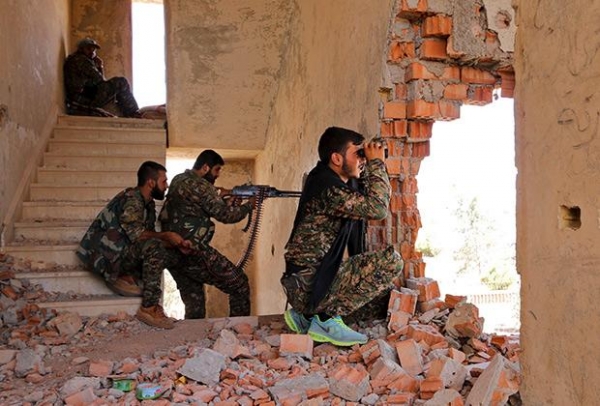
Syrian Kurds have been fighting against terrorists and troops of the official Damascus for control of their lands. In March 2016 they proclaimed the Federation in the North
Photo: Rodi Said / Reuters
I don’t think you can copy the system from London, Washington or Paris, to put it in Damascus or Cairo and say, “okay, we democratizers”. We had democratic elections in Iraq, Libya and Yemen — and what is the result? I agree with you — I’m not pitching any particular form of democracy. We need an inclusive Arab system of government. It falls under the Western definition of democracy or not — what the hell is the difference!
And if we talk about the big picture: what are the lessons of the middle East and the whole world can learn from the “Arab spring”?
The main lesson — we should always pay attention to the cause of the conflict and not on its consequences. Most often we deal with is the consequences of such phenomena. Yes, there is a security issue, and we’re trying to solve, but you have to think about that drove these young people to the streets. They came not just! They left because they were excluded from economic and political life of the country. And their zeal has been used by foreign actors who pursued their interests. That is, the combination of internal and external factors.
We, first, need to stop foreign interference; secondly, to solve it gave rise to a protest issue. It is not enough just to say: “I took the city streets under control and restricted foreign influence.” What about unemployment? What about involvement in economic and political life of the country? What about human rights? What about accountability?
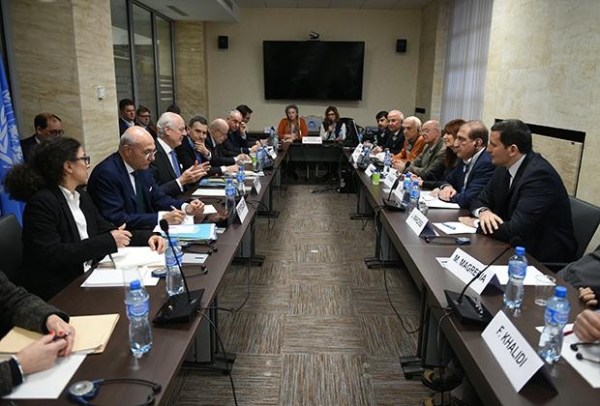
The inter-Syrian negotiations in Geneva have not led to significant results. The next round will be the second after the armistice
Photo: Philippe Desmazes / AP
If all this is not to ignore, the “Arab spring” continues, she just changed the name. By the way, spring in the Arab countries — a very turbulent period. We do have our sand storms in the air a lot of dust, regularly suffer from allergies. It’s not a beautiful spring Europe — the place where was invented the term “Arab spring”. No sane Arab would not say “spring”. Spring is a time of storms.
You said about foreign intervention. Do I understand correctly that there is no division into good and bad interference that any involvement of foreign countries leads to negative consequences?
The actions of foreign countries in Syria today are crucial, and they should start playing a positive role rather than negative. Therefore, I believe that mutual understanding between Russia and the US is extremely important — it will allow to unite all the countries of the region and the world peace plan.
But this will lead to even greater intervention by external forces, which you call negative!
Oh my God, Yes! But they already are interfering — maybe they finally will play a constructive rather than a destructive role!
What should I do to Syria has once again become a prosperous country? Where can I start today?
First let the Syrians to get back to work. How to do it? Peace, legitimate political institutions, fundamental freedoms. Let them unleash their entrepreneurial spirit, to use their great history and indomitable spirit — and they will succeed. I’m not even too worried that countries need $ 200 billion. Yes, problems with money, but this is not the main problem. Let the Syrians work — and they will show you miracles.


